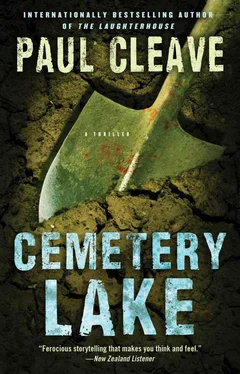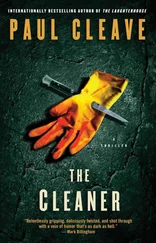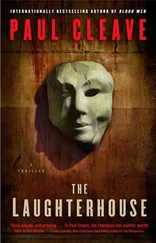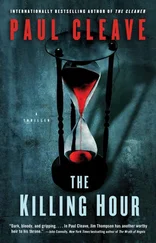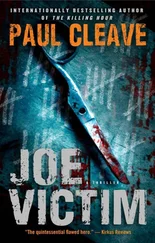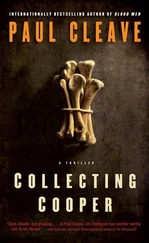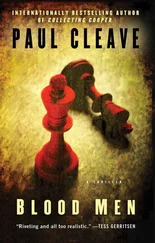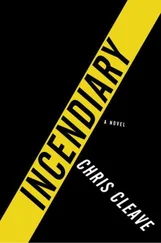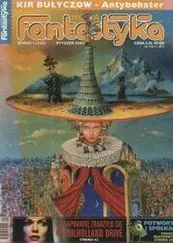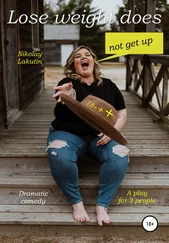Paul Cleave - Cemetery Lake
Здесь есть возможность читать онлайн «Paul Cleave - Cemetery Lake» весь текст электронной книги совершенно бесплатно (целиком полную версию без сокращений). В некоторых случаях можно слушать аудио, скачать через торрент в формате fb2 и присутствует краткое содержание. Год выпуска: 2008, ISBN: 2008, Издательство: Atria Books, Жанр: Триллер, на английском языке. Описание произведения, (предисловие) а так же отзывы посетителей доступны на портале библиотеки ЛибКат.
- Название:Cemetery Lake
- Автор:
- Издательство:Atria Books
- Жанр:
- Год:2008
- ISBN:9781451677836
- Рейтинг книги:3 / 5. Голосов: 1
-
Избранное:Добавить в избранное
- Отзывы:
-
Ваша оценка:
- 60
- 1
- 2
- 3
- 4
- 5
Cemetery Lake: краткое содержание, описание и аннотация
Предлагаем к чтению аннотацию, описание, краткое содержание или предисловие (зависит от того, что написал сам автор книги «Cemetery Lake»). Если вы не нашли необходимую информацию о книге — напишите в комментариях, мы постараемся отыскать её.
Cemetery Lake — читать онлайн бесплатно полную книгу (весь текст) целиком
Ниже представлен текст книги, разбитый по страницам. Система сохранения места последней прочитанной страницы, позволяет с удобством читать онлайн бесплатно книгу «Cemetery Lake», без необходимости каждый раз заново искать на чём Вы остановились. Поставьте закладку, и сможете в любой момент перейти на страницу, на которой закончили чтение.
Интервал:
Закладка:
The tears don’t come as much these days. The pain is part of who I am now. Getting rid of it would be like losing a limb.
There are flowers on her grave that have wilted and died, put there I imagine by either my parents or Bridget’s parents. The coffin beneath the earth is child sized, and the mere fact there is a market for child-sized coffins in this world proves it’s a messed-up one-and for the briefest moment I think about the condition the coffin is in, whether it’s as dented and damaged as the one pulled out of the ground earlier today, or whether its smallness helped it withstand the weight of the earth above it. Then I wonder if she is even in there.
I don’t bother to tell Emily about my day because she can’t hear me. Emily is dead, and none of the romanticized ideas I have at Death Haven reach out here.
I walk toward the lake and come to a stop near the police tape. It seems that every year the people who manufacture this stuff have to add another mile to the roll to keep up with the Christchurch crime rate. A good year for them means a bad year for the rest of us. The scene looks like an archaeological dig. There are more cranes and trucks than before. Strings of lights around the edges of the tents are glowing brightly as if a pageant is going on in the middle of it all-except that here the performers are women and men in different-colored overalls marching back and forth, cataloging death along with the different types of samples that come with it. There is a mound of dirt from another coffin that has been dug up. I thank God that Emily is buried far away from this scene, and then I curse Him for making me bury her in the first place. Then I think of the irony of that statement since I know there can’t possibly be a God-or, if there is, that He abandoned this city a long time ago.
I’m about to duck under the tape when an officer who wasn’t here earlier in the day approaches me and tells me in his sternest voice that I can walk no further.
“I just want to know how things are going,” I say.
The officer gives me his practiced stone-cold glare, and tells me to read tomorrow’s paper. I feel like hitting him.
“Has anybody spoken to the caretaker yet?” I ask him.
“Listen, mate, none of this is any of your business.”
“I came to visit my daughter,” I say, about to play the sympathy card. “Her grave is here.”
His eyes narrow, and he looks like he is about to tell me that having a dead daughter doesn’t give me a free invitation to go wherever the hell I please, but slowly he seems to become aware it’s the type of comment I’d make him regret saying.
“I’m sorry, mate,” he says, “but you’ve picked a bad time to come.”
“Yeah, well, she picked a bad time to die.”
He doesn’t know what to say, so he says nothing, figuring this is best, and I figure he’s right. I stay at the line of police tape, trying to make eye contact with anybody who will tell me anything, but there’s too much going on for that to happen. The officer keeps looking at me like I’m a shoplifter. I feel his eyes on my back the entire way as I walk to my car. He’s probably wondering if I’m for real.
The cemetery grounds are like a golf course, separated into many sections divided up by hedges and trees and bushes, and it’s easy to get lost in here. The main road through it branches off to these different areas, and one of the bigger branches leads to the Catholic church, which sits left of the cemetery, back some forty meters from the road. A belt of trees forms a horseshoe barrier around its sides and back, so that if you’re at the lake or even in other parts of the cemetery you might not even know it was there. This is the church that once held a ceremony for my dead little girl, but more recently gave me somewhere to serve the priest with an exhumation order for Henry Martins.
I park as close as I can to the huge oak doors that could pass entry to a fairy-tale giant and I walk up the stone steps. The wooden door on the right swings open easily and noiselessly. Inside the church the temperature seems to drop another degree with every step I take. Most of the lighting is coming from candles, with a few overhead lights dimly illuminating the chapel. There are dozens of pews, all of them empty except for one at the very front where a man is staring ahead, lost in thought, seemingly unaware or uncaring of my presence.
I walk down the aisle, letting my fingertips tap the pew backs along the way. Left and right are tapestries of Jesus and stained glass windows of Jesus and paintings of Jesus. Somewhere around here there’s probably a gift shop with coffee cups with a smiling Jesus. At the head of the church behind the altar is a large, wooden crucifix with a large, wooden Jesus carved onto it. Jesus doesn’t seem to care that he’s hanging on a slight angle, or that he’s being promoted so heavily.
Before I reach the end of the aisle one of the boards beneath me creaks, and the priest turns suddenly. He steps out from the pew and smiles at me, but after a few seconds the smile falters, and I realize how hard it must be for him to maintain his composure under the strain not just of this day but of every day. Priests don’t see the same violence that cops do, but they sure as hell hear about it-and worse. They’re the ones trying to pick up the pieces of a broken family looking to blame more than just the man or the disease that took away their loved ones.
Two years ago he was there for me. Two years ago he tried to help me pick up the pieces of my life, only I didn’t want his help. Not really. I wanted to pick up those pieces in my own way.
Father Stewart Julian, a man in his mid to late fifties who has been here for as long as I can remember, offers me his hand. He has a notepad in his other hand that he hasn’t written a thing on, and a newspaper folded on the pew where he was sitting. His soft face, gray hair, and black eyebrows give him a kind look, but at the moment he looks tired. Still, I figure in his day, if Father Julian hadn’t become a priest, he would’ve had women all over him.
“Awful day, Theo,” he says, shaking his head, proving just how awful the day really is. “Just awful.” His voice is low and easy to listen to, a voice well suited for the radio. “It’s been long and it’s already late. You wouldn’t believe how many hours I’ve had to spend talking to police. Or to families of those who have loved ones buried here. They keep calling, Theo, scared that their mothers and fathers and sons and daughters are being desecrated. Word has gotten out about the bodies in the water, and people are thinking they might be people who were buried here. The calls finally stopped an hour ago, and since then I’ve been looking for a distraction.” He waves the notepad a little. “Have you seen this?” he asks, and picks up the newspaper.
“Seen what?” I ask, pretty sure that the distraction was a hundred miles away, because that’s where Father Julian seemed to be looking before he heard me.
“This,” he says, and he points to the article.
“I’ve seen it.” It’s a newspaper article about the advertising campaign for McClintoch spring water. Promotional billboards have been erected across the country and advertising spots taken out in newspapers. The ads say, What would Jesus drink? and show Jesus turning wine into water with McClintoch spring water labels on the bottles.
“I just don’t understand,” he says, shaking his head.
“Times are changing,” I say, hoping my answer will apply here. I like giving my priest vague answers, the same way he used to give me vague answers. When my daughter was killed and my wife lay in a state close to death, he’d tell me it was part of God’s plan. “Father, I was hoping you could help me out.”
Читать дальшеИнтервал:
Закладка:
Похожие книги на «Cemetery Lake»
Представляем Вашему вниманию похожие книги на «Cemetery Lake» списком для выбора. Мы отобрали схожую по названию и смыслу литературу в надежде предоставить читателям больше вариантов отыскать новые, интересные, ещё непрочитанные произведения.
Обсуждение, отзывы о книге «Cemetery Lake» и просто собственные мнения читателей. Оставьте ваши комментарии, напишите, что Вы думаете о произведении, его смысле или главных героях. Укажите что конкретно понравилось, а что нет, и почему Вы так считаете.
